Coming Into His Own, With Springsteen Leading the Way
Gurinder Chadha’s "Blinded by the Light" shows how music gives wings to the mind and flight to the imagination.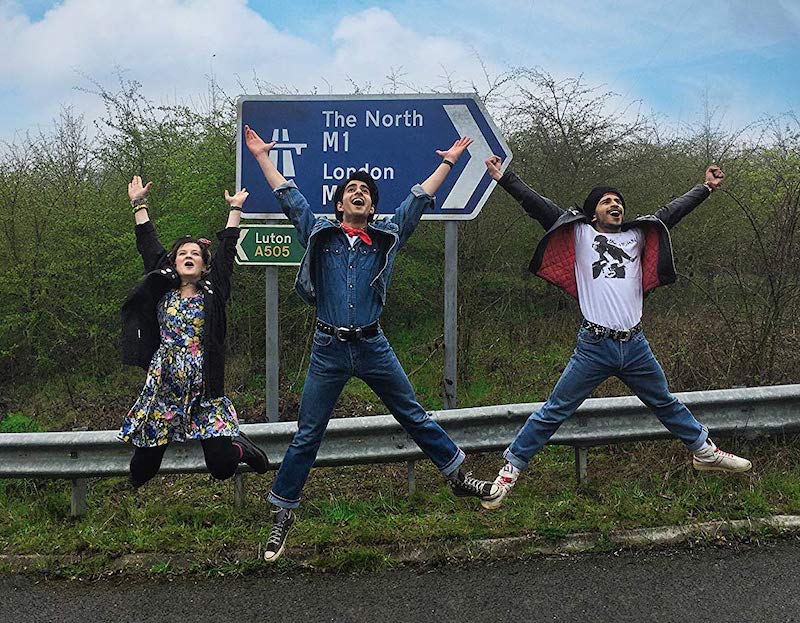 Nell Williams, Aaron Phagura and Viveik Kalra jump to it in "Blinded by the Light."(Nick Wall / Warner Bros.)
Nell Williams, Aaron Phagura and Viveik Kalra jump to it in "Blinded by the Light."(Nick Wall / Warner Bros.)
Like most teens, Javed (Viveik Kalra) struggles to define himself and find his own voice. This is more challenging for him than for his schoolmates in the working-class borough of Luton, England, in 1987, when, prefiguring the present day in the U.S. and U.K., the rising tides of Thatcherism and British nationalism polarized the nation.
The anarchic voices in the classroom are worlds away from the Punjabi-inflected English spoken at home by his parents, immigrants from Pakistan. Whipsawed between the punk rebellion of his classmates and his father’s insistence that he study medicine, Javed can’t hear himself think, let alone his voice.
When a mate presses a decade-old Bruce Springsteen cassette on Javed, he is electrified. Hearing The Boss find his voice moves Javed to articulate his own. You can’t start a fire without a spark, sang Springsteen in “Dancing in the Dark.” That spark of Springsteen’s ignites a conflagration under Javed in “Blinded by the Light,” Gurinder Chadha’s buoyant and blissful film based on the memoir of journalist Sarfraz Manzoor.
Watching the teenage Javed become his own man is the best time I’ve had at the movies this year.
Chadha, best known for her feverishly enjoyable soccer-gals movie, “Bend it Like Beckham” (2002), and the charming Jane Austen musical update “Bride and Prejudice” (2004), is a Kenya-born, Britain-raised artist of Punjabi descent. Her best movies focus on characters’ multiple cultural identities, characters that negotiate original, best-of-both-worlds definitions of who they are. In view of today’s bruising issues of nationalism and immigration, these movies are deeply healing.
Yet the revelation here is how the director (who also produced and co-wrote) finds film language to show how music gives wings to the mind and flight to the imagination. When Javed listens to Springsteen, the lyrics (literally) dance around him onscreen, fueling his transformation from class nerd to its poet laureate, from awkward teen to confident romantic, self-assured enough to ask Eliza (Nell Williams), the smart punkette in English class, for a date.
Chadha has a great eye for actors (she did, after all, effectively discover Keira Knightley and Archie Panjabi). And while there is every reason to see the film for the charismatic performances of Kalra and Williams, the joy of the film is not in their individual turns, but in how, in a time of political factionalism, music unifies them and their community.
In the current era of jukebox musicals—think “Bohemian Rhapsody” and “Rocketman”—Chadha is on to something original with “Blinded by the Light.” Namely, that rather than making a film about the life of a musical artist, the best way to tell a biopic is to make it about the artist’s legacy and influence on listeners.
The takeaway of “Blinded by the Light” is that by connecting with Springsteen’s stories of the inner lives of real people, Javed is able to find himself as a man, a writer and a human capable of forgiveness and love. In Springsteen’s music, Chadha and her protagonist find the means of putting poetry with the reach of the man (and woman) on the street.
P.S. One of Chadha’s lesser known films, “What’s Cooking?” (2000), is a lovely story of four separate Thanksgiving dinners in Los Angeles ethnic communities that dovetail in a startling way. See it somehow.
Your support matters…Independent journalism is under threat and overshadowed by heavily funded mainstream media.
You can help level the playing field. Become a member.
Your tax-deductible contribution keeps us digging beneath the headlines to give you thought-provoking, investigative reporting and analysis that unearths what's really happening- without compromise.
Give today to support our courageous, independent journalists.


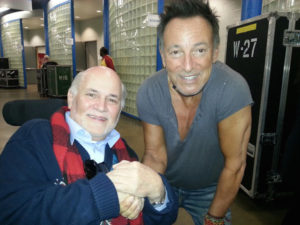
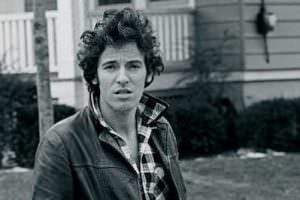
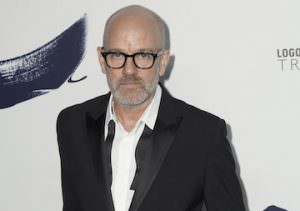
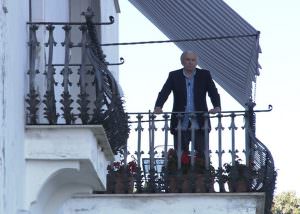


You need to be a supporter to comment.
There are currently no responses to this article.
Be the first to respond.